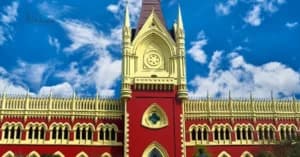In a significant judgment that blends law, tradition, and local faith, the Himachal Pradesh High Court has allowed villagers from Dhar Chandna and Bawat to celebrate Diwali in the courtyard of the ancient Mahasu Devta Temple at Gaunkhar, provided strict conditions are followed. Justice Sandeep Sharma delivered the order on October 17, 2025, after weeks of heated arguments between communities claiming religious rights and those fearing violence.
Background
The dispute traces back to a centuries-old custom. For generations, villagers of Gaunkhar, Dhar Chandna, and Bawat have jointly celebrated “Budhi Diwali” a late Diwali festival marked by dance, songs, and flaming torches. But over the years, the celebrations turned sour. In 2019 and again in 2023, fights reportedly broke out as intoxicated participants allegedly misbehaved, sparking police complaints and community resentment.
To prevent further clashes, the local SDM at Chopal had, in November 2020, barred residents of Dhar Chandna from entering Gaunkhar for the festival. The panchayats even signed a written understanding to celebrate Diwali separately. However, when the ban was enforced again in 2024, villagers from Dhar Chandna and Bawat approached the High Court, claiming it violated their constitutional right to practice religion freely.
Court’s Observations
Justice Sharma took a balanced view, acknowledging both the villagers’ faith in Mahasu Devta and the genuine safety concerns raised by Gaunkhar residents.
The bench observed, “Stray incidents of disorder cannot justify permanently barring devotees from worshipping their deity. Such restrictions would infringe Articles 25 and 26 of the Constitution.”
The court underscored that freedom of religion cannot be curtailed by a blanket administrative order unless there’s a clear and direct threat to public order. It reminded officials that “the State cannot suppress fundamental rights merely on the apprehension of trouble by a few.”
At the same time, Justice Sharma was mindful of local sensitivities. He noted that unrestricted entry, liquor use, or large processions could again trigger violence. “Faith must never become an excuse for indiscipline,” he remarked during the hearing.
Read also:- Supreme Court Tells Delhi Trial Court to Take Suo Motu Action Against False Witnesses in 2019
Decision
Balancing faith and order, the court permitted residents of Dhar Chandna and Bawat to participate in Diwali festivities at Mahasu Devta Temple under tight restrictions. Only one torch per family will be allowed, no weapons or liquor can be carried, and processions must remain peaceful.
The Deputy Commissioner and Superintendent of Police, Shimla, were directed to deploy adequate police personnel for three days of celebrations starting October 20, 2025. Gram Panchayat leaders were instructed to ensure full compliance and face contempt proceedings if violations occur.
Read also:- Delhi High Court Restrains Punjab Firm from Selling 'SRF-C51' Potato Variety, Finds Genetic Similarity with Mahindra’s Registered 'Colomba'
Justice Sharma concluded firmly: “These directions aim solely to ensure peace and preserve the centuries-old tradition without endangering public safety.” The court also advised local representatives to sit together after Diwali and resolve the conflict permanently.
With that, the petition was disposed of leaving both faith and law standing side by side under the watch of Mahasu Devta.
Case: Padam Sharma & Others vs State of Himachal Pradesh & Others
Case No.: CWP No. 12099 of 2024
Petitioners: Residents of Village Gaunkhar led by Padam Sharma
Respondents: State of Himachal Pradesh, local authorities, and Gram Panchayats of Dhar Chandna & Bawat
Date of Judgment: 17 October 2025













